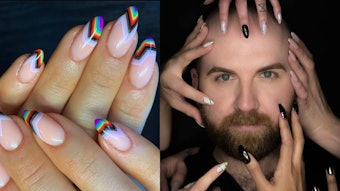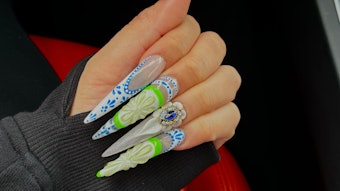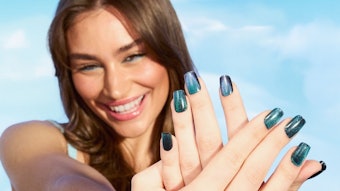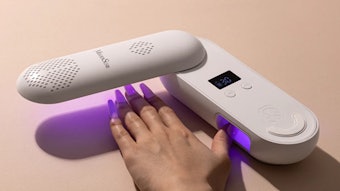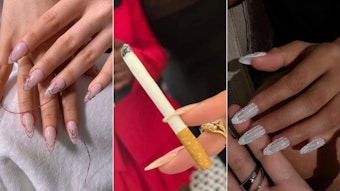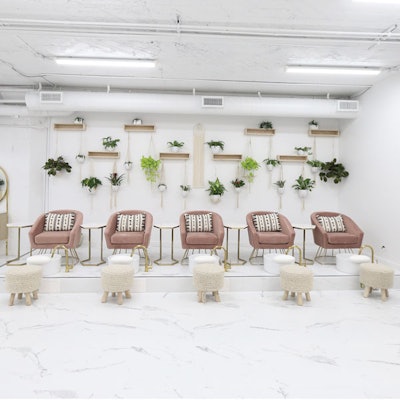 [The Neihulé Academy of Beauty]
[The Neihulé Academy of Beauty]The Neihulé Academy of Beauty, which offers licensing programs in cosmetology, nail technology, esthetics and microblading (with a makeup program launching soon), certainly isn’t the only beauty school in Los Angeles, but from the beginning, the Neihulés set out to create a different kind of learning experience for students. The couple already owns an upscale, full-service salon in Downtown Los Angeles, now in its 11th year, which has played a big part in shaping their views on education. “Through all of my years of interviewing nail techs and hairstylists, I’ve noticed that there are gaps in their education that make it challenging for them to obtain jobs,” explains Yvonne, who says she’s had to invest countless hours training new hires before they were prepared to work on the salon floor. “Unfortunately, when most students graduate from beauty school they’re still quite green. A lot the schools’ goals are just to make sure students pass the state board, but not to help them become successful salon professionals.”
One of the issues with traditional beauty schools, asserts Yvonne, is that students tend to be trained using out-of-date techniques and products. “For instance, not many nail techs really know how to do acrylics anymore or even hard gels,” she says. “And real salon professionals aren’t using the products that they’re using in the schools, so new graduates have to be trained all over again.”
RELATED: How to Make Your Mark as an Editorial Nail Tech
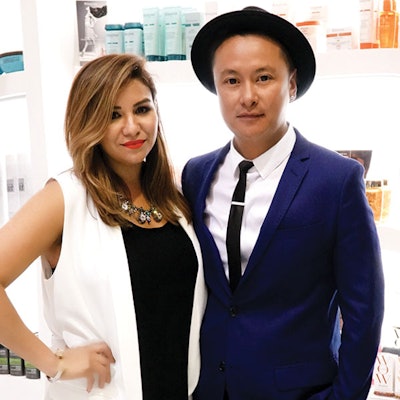 [Yvonne and Atouzo Neihulé]
[Yvonne and Atouzo Neihulé]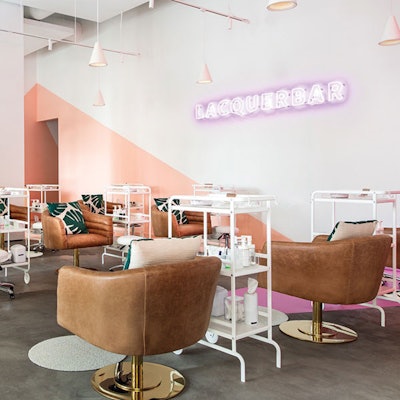 [Lacquerbar]
[Lacquerbar]RELATED: Using CBD in the Salon – Free eBook
Another issue with traditional beauty schools, says Rodriguez Prilliman, is that it can be difficult for aspiring beauty pros—many of whom may be balancing a second job or children—to find affordable, quality education that fits into their schedules. Compounding the problem, she adds, is the predatory practices used by some schools to boost enrollment. “There are some places that target lower-income minority communities and help them take out credit cards to pay for school,” explains Rodriguez Prilliman. “They have outrageous rates, and people aren’t able to pay them back and end up leaving the field entirely. Even the beauty school I went to was shut down due to predatory practices.”
For Rodriguez Prilliman, who worked for a technology startup for several years before opening Lacquerbar, the answer to resolving the beauty school education conundrum lies in harnessing technology. Enter Lacquerbar U, an online education program for nail techs, which Rodriguez Prilliman began rolling out this past summer. For now, Lacquerbar U is focused solely on extended education, offering online instruction, including live programming, in techniques like hard gel and acrylic extensions and advanced nail art—“all the things that they didn’t teach you in school that will help you be more successful, get customers and make more money,” says Rodriguez Prilliman. Eventually, she would like to develop an app, although she admits it will take time to see her vision come to fruition. “In the long term, we want to help change the licensing laws state by state to make it possible for students to do some of their schooling online and some in person,” she says. “We want to partner with beauty schools to make education more flexible for people.”
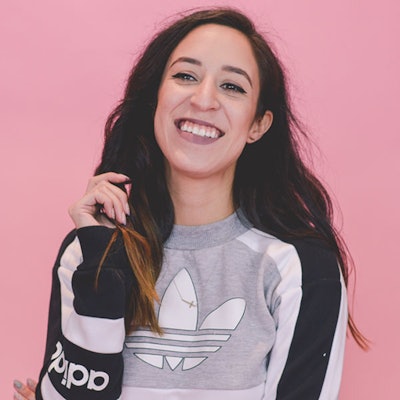 [Heli Rodriguez Prilliman]
[Heli Rodriguez Prilliman]While the road to improving beauty school education may be pitted with obstacles, both the Neihulés and Rodriguez Prilliman are committed to making a difference. “We’ve got a lot of work to do, that’s for sure, but it’s something I’m really passionate about, especially because it affects so many women,” says Rodriguez Prilliman. “Our bigger mission is to improve the nail industry as a whole by helping women be successful in the long term.”
–by Lotus Abrams
[Images: Courtesy of Neihule Academy of Beauty; Lacquerbar]
This story first appeared in the September issue of Nailpro magazine. To receive the magazine, click here to subscribe.
